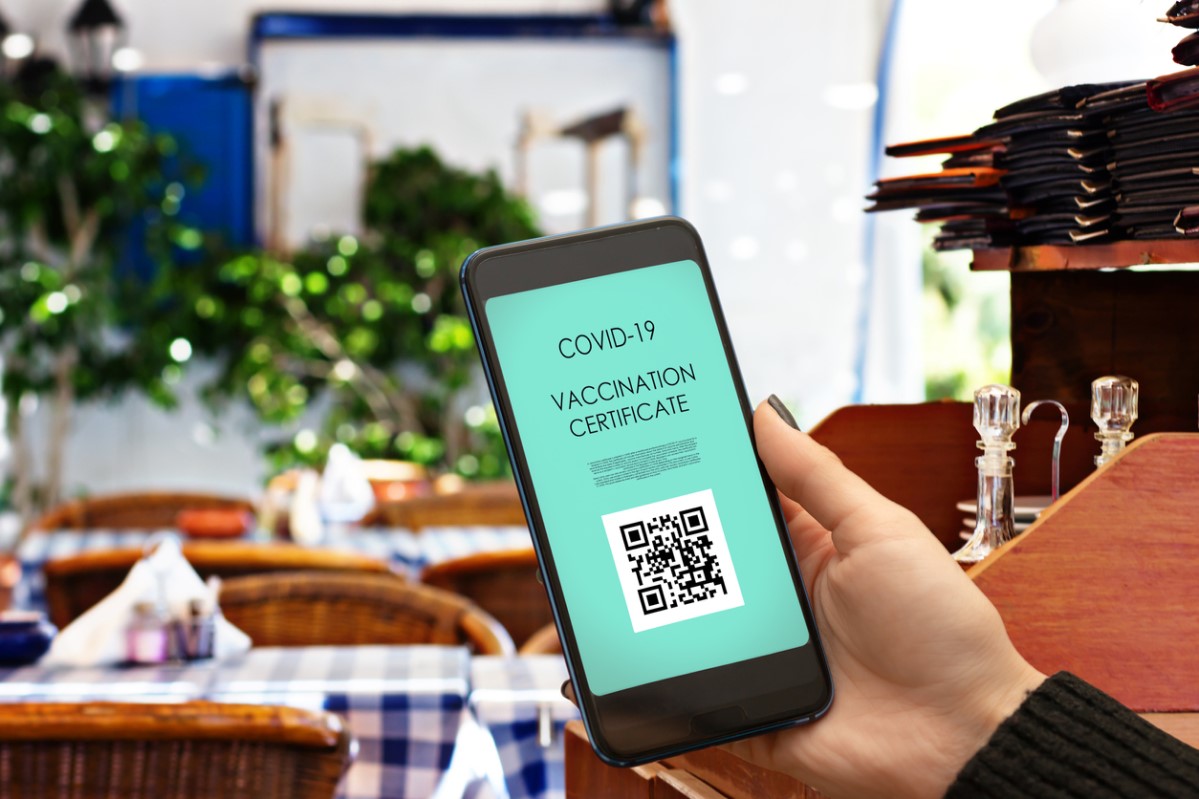This week’s announcement that Australians will soon have access to a new QR code vaccine certificate for international travel has sparked debate over a “vaccine passport” out of restrictions.
Australians fully vaccinated against COVID-19 can already access a vaccination certificate through MyGov once they receive their second jab. The new digital certificate, however, which will enable quarantine-free international travel, will use a Visible Digital Seal, and can be stored on a mobile phone.
Although it remains controversial, some are now floating the idea that these types of certificates may be used in Australia as a vaccine passport to provide an extra incentive to so-called “pockets of hesitancy”. Such a scheme could also help venues move beyond the crippling stop-start cycle of lockdowns of the past two years.
In Ireland, which is further along in its vaccination rollout, patrons must now show that they have received both jabs or have recovered from Covid before they are able to enter indoor venues. France and Italy are introducing similar requirements for bars, restaurants and cafes, and in the UK from September, entry to nightclubs will require proof of vaccination.
The Australian government recently updated its four-phase roadmap to exit the pandemic to include “freedom incentives” that would exempt vaccinated residents from domestic restrictions in the third step of the plan – triggered when 80 per cent of the adult population in Australia is vaccinated.
“There is a lot of speculation right now about vaccine passports and exactly what that will mean if adopted in any of the various forms being discussed,” AHA National CEO Stephen Ferguson told Australian Hotelier.
“The fact is that at this point of time we have no legal basis to compel either patrons or staff to have vaccinations of any kind. We also don’t have sufficient supply of vaccine.
“We’re talking with government, but unfortunately at this stage we have more questions than answers. If business is required to only allow patrons in who can prove vaccination, will the same apply to government-owned museums, art galleries and workplaces?”
Other questions that needed to be answered, Ferguson said, included at what point in time all Australians would have the opportunity to be fully vaccinated, whether the Delta variant posed an increased risk for those checking vaccination status at the door, and whether staff who refuse to get vaccinated would lose their jobs.
“In the meantime, we strongly encourage all staff and patrons to be vaccinated as soon as possible,” Ferguson said.
Lewis Land Group CEO, Matthew McCarron said he believed the issue comes down to risk and safety. “There will be areas where we can adhere to the more traditional measures of ensuring low levels of risk, such as maintaining four square meters or in outdoor environments where there may not be a need for monitoring in terms of vaccination status.
“For higher risk settings where venues are looking at high-density patronage or dancing, there is a potential role for some form of verification to form a part of that mix and to get back to normal as soon as possible,” McCarron said.
“The priority is to get there asap, and this is one of the tools that might allow many industries to return to some semblance of normality, and there is clearly the added benefit of providing an incentive to people to follow the health advice and get vaccinated.”

